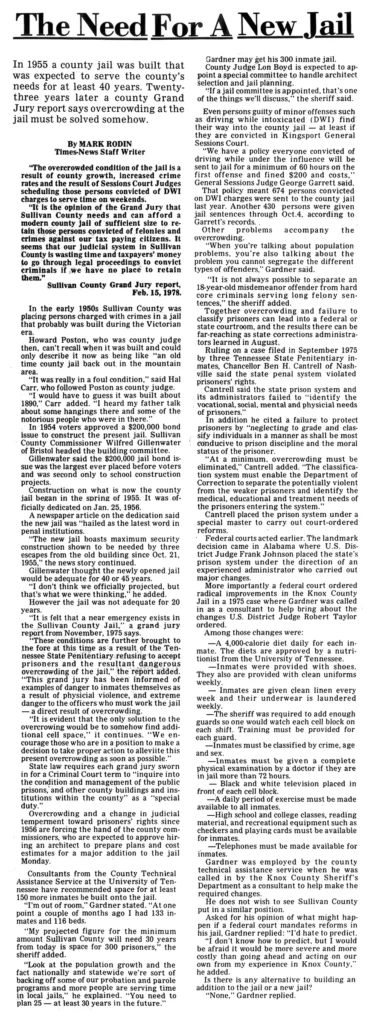Kingsport Times-News – …we’re sort of backing off some of our probation and parole… Even persons guilty of minor offenses …find their way into the county jail. Is there is any alternative to building an addition.. or a new jail? “None,’’ Read More
Kingsport Times-News – …we’re sort of backing off some of our probation and parole… Even persons guilty of minor offenses …find their way into the county jail. Is there is any alternative to building an addition.. or a new jail? “None,’’ Read More

 This work is licensed under a Creative Commons Attribution-ShareAlike 4.0 International License.
This work is licensed under a Creative Commons Attribution-ShareAlike 4.0 International License.